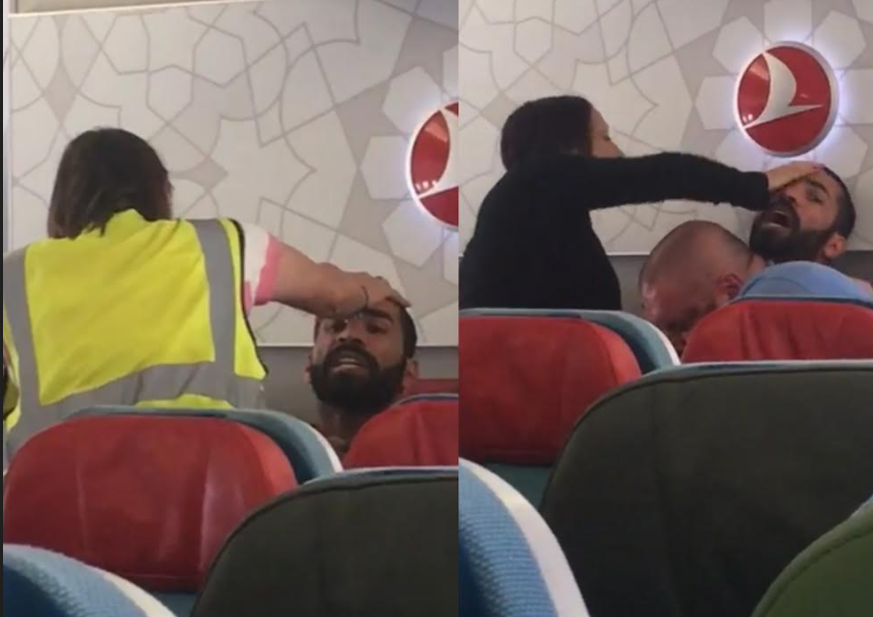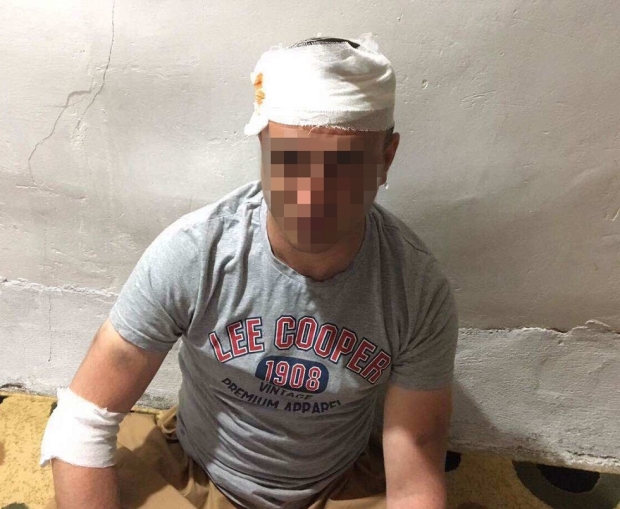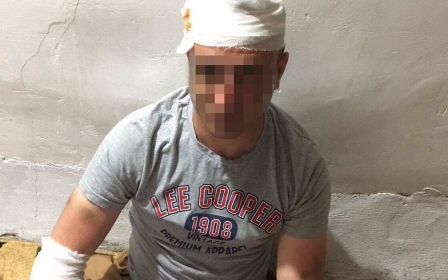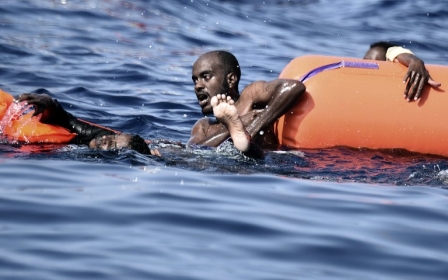'I can't breathe': Forced removal of Afghan from UK may be unlawful

The forced removal of a failed asylum seeker who was filmed being slapped and punched by UK immigration officials may not be legal, a human rights lawyer has said.
The man was being deported to Afghanistan from the UK on Saturday aboard a Turkish Airlines flight, despite saying that he had refugee status in Italy. A video of the incident has been viewed more than one million times on social media.
Footage shows the man being slapped by men sat next to him who are UK immigration officials.
The man can be heard screaming "I can't breathe" and shouting "please" repeatedly as his head is pushed into the back of the plane by three UK officials who surround him.
Airline staff can also be seen milling around the UK officials and asking passengers not to film the incident. Turkish Airline's logo is displayed on a wall behind the man's head: the carrier has refused to comment on the incident.
Noticing the camera, the man then shouts: "Oh my God, please send it to media. I am Afghan, I am Afghan. I have Italian document. The UK immigration by force sends me to Afghanistan. Afghanistan is not safe for me... I have Italian documents, why not send me to Italy."
Jamie Bell, a solicitor from Duncan Lewis, the largest legal aid immigration practice in the UK, told Middle East Eye that the UK government should "consider the safety and reasonableness of removals (back) to Kabul.
"It is very upsetting to see that immigration officers are physically assaulting detainees in order to forcibly remove them to a deeply insecure and unstable country."
It is very upsetting to see that immigration officers are physically assaulting detainees in order to forcibly remove them to a deeply insecure and unstable country
- Jamie Bell, Duncan Lewis
MEE is not able to independently verify whether the Afghan man did have refugee status in Italy.
The footage comes after previous reports of failed asylum seekers suffering inhumane practices during their forced removals from the UK.
Bell said: "We are surprised that the Home Office persist in forcibly removing Afghans when we understand that a Country Guidance is to be imminently listed to consider the safety and reasonableness of removal to Kabul."
Country guidance is used by the British government to determine whether a country is safe enough to send individuals back to.
Bell told MEE that if the man had Italian refugee status, then the removal to Afghanistan was "unlawful" and instead he should have been returned to Italy.
Man screamed: 'I can't breathe'
The incident at the weekend took place on a flight bound for Istanbul from London's Heathrow airport.
Eyewitnesses on board the flight can be heard protesting at the man's treatment. One says: "You can't slap him, stop slapping him" while others shout: "There's no need to punch his face" and "They're pushing his face in the fucking seat".
Qes Ahmed, who was one of those who filmed the incident and posted it on social media, told MEE that the Afghan national was screaming for 20 minutes before being taken off the plane.
"They [officials] were not handling him like a human," Ahmed said. "Both officers and the Turkish Airlines officers tried to stop us from filming the incident. The man was being manhandled."
They [officials] were not handing him like a human. Both officers and the Turkish Airlines officers tried to stop us from filming the incident. The man was being manhandled
-Qez Ahmed
At one point a passenger challenges a woman who appears to be accompanying the man. She tells the traveller: "It's a head restraint, it's part of our training."
The official is wearing a high-visibility tabard which displays the logo of Tascor, one of several companies contracted by the UK government to remove failed asylum seekers.
Tascor refused to comment on the incident. It told Middle East Eye that its security operatives are governed by UK Home Office rules. The former chief inspector of prisons, Nick Hardwick, previously criticised Tascor for acting unprofessionally and using control techniques which are likely to escalate difficult situations during forced deportations.
The man was eventually taken off the plane after demanding to see the pilot.
Other refugees have injuries from flights
A Home Office spokesperson told MEE: "Whilst it is regrettable that some people become disruptive on removal, we do our utmost to try and minimise any potential impact on the rest of the passengers.
"Any use of force must be fully justified and proportionate and is used only as a last resort for the shortest time possible.”
The Home Office also told MEE that it has reintegration packages on arrival for failed asylum seekers who were deported back to their country of origin.
'Any use of force must be fully justified and proportionate and is used only as a last resort for the shortest time possible'
- UK Home Office
But according to Bell, these packages are "grossly ineffective to the realities of return to Afghanistan. They [the Home Office] does not track or keep a record of those forcibly returned. Those who have returned have basically said that once they are returned and dropped off at airport security, they are by themselves."
This latest incident comes after previous accounts of migrants who were deported back to their country of origin being forced to sit in the back of the plane and at times assaulted by immigration officers accompanying them.
In April, an Iraqi asylum seeker told MEE he was injured, hooded, handcuffed and locked inside a plane toilet while being forcibly removed from the UK to his home country.
He was removed on 11 April on a Royal Jordanian flight and shadowed by three British guards.
Refugee activists told Middle East Eye that Ismail said he was hooded and handcuffed by the guards - which caused bruising still visible a week later. He was then moved to a toilet inside the plane and spent the duration of the five-hour journey to Amman in his handcuffed, hooded and injured state.
Middle East Eye propose une couverture et une analyse indépendantes et incomparables du Moyen-Orient, de l’Afrique du Nord et d’autres régions du monde. Pour en savoir plus sur la reprise de ce contenu et les frais qui s’appliquent, veuillez remplir ce formulaire [en anglais]. Pour en savoir plus sur MEE, cliquez ici [en anglais].




